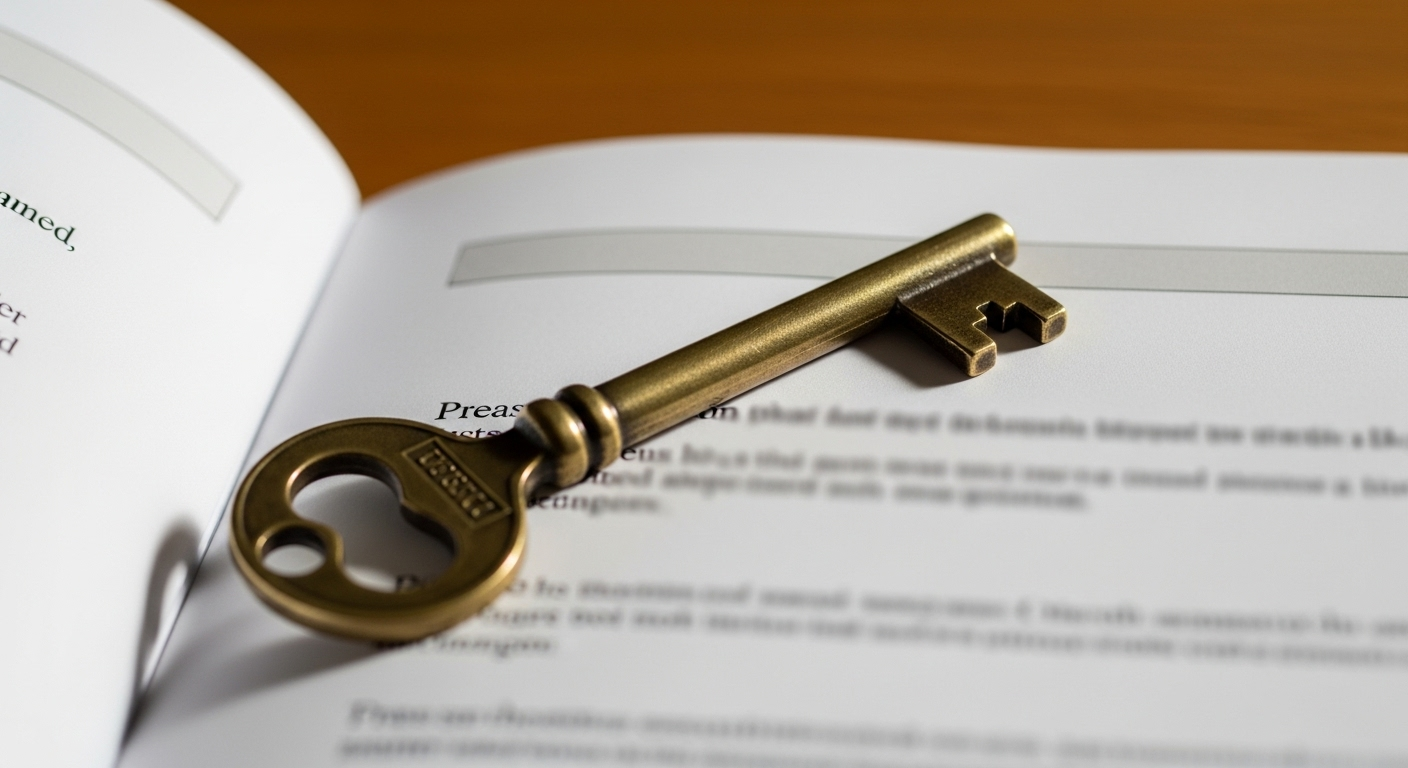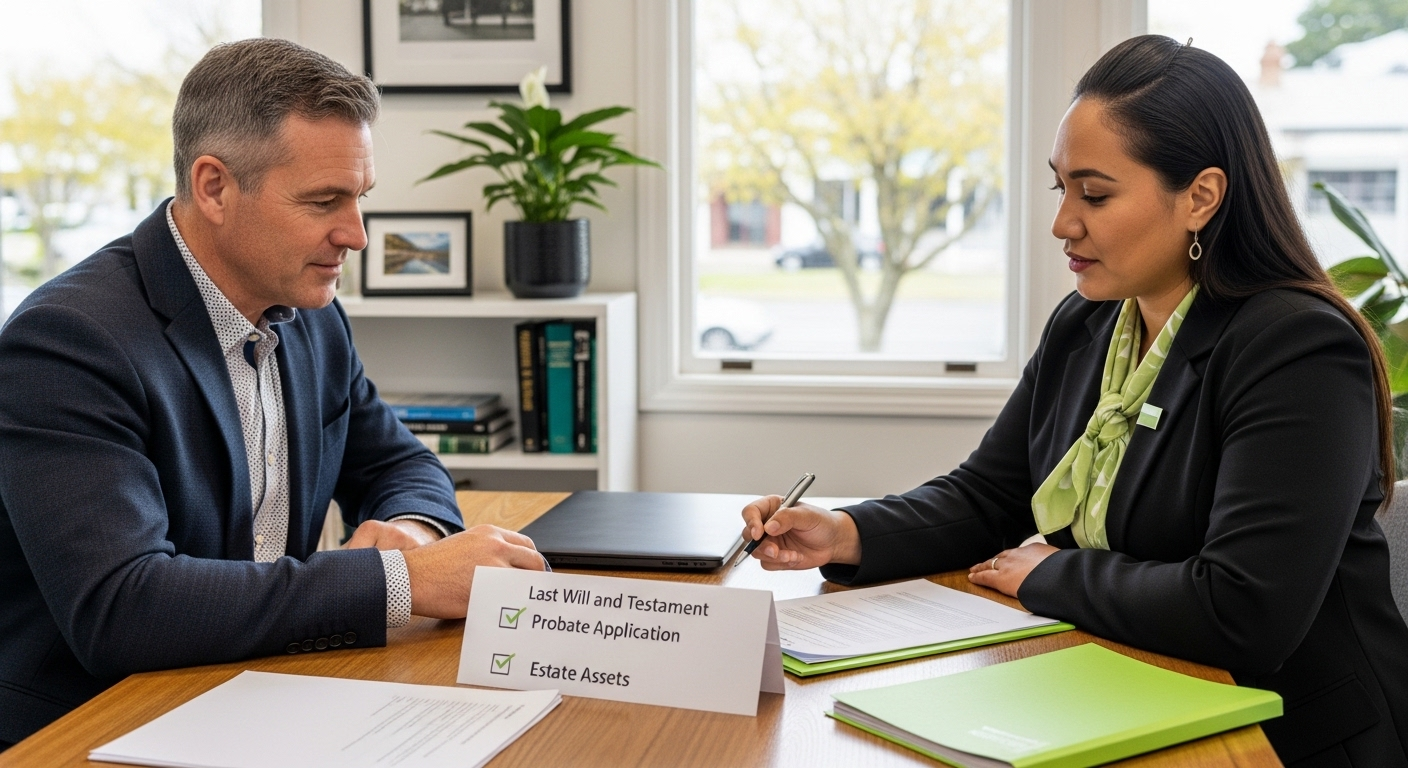The Enduring Power of Attorney in NZ: Your Complete Decision-Making Guide
Enduring Power of Attorney for Personal Care and Welfare: Your Guide
Key Takeaways
- An Enduring Power of Attorney (EPA) is a legal document where you (the 'donor') appoint someone you trust (the 'attorney') to make decisions on your behalf if you can no longer make them yourself.
- There are two types of EPAs in New Zealand: one for Property (managing your money and assets) and one for Personal Care and Welfare (your health and lifestyle decisions).
- Your attorney for Personal Care and Welfare can only act when a medical professional has certified that you have lost the mental capacity to make your own decisions.
- If you don't have an EPA in place and lose capacity, the Family Court may need to appoint a welfare guardian to make decisions for you, a process which can be stressful and costly for your family.
- Setting up an EPA requires your signature to be witnessed by a lawyer, a qualified legal executive, or an authorised officer of a trustee corporation to ensure it is legally valid.
Have you ever paused to think about the future? Not just about retirement plans or travel, but about who would speak for you if you couldn't speak for yourself? It’s a confronting thought, but planning for it can bring incredible peace of mind. An Enduring Power of Attorney, or EPA, is one of the most important legal tools you can have in New Zealand to ensure your wishes are respected, no matter what life throws your way.
This is not about giving up control; it’s about taking it. It’s about choosing someone you trust to make vital decisions about your wellbeing, rather than leaving it to chance or a court to decide.
Let’s walk through what an EPA for Personal Care and Welfare is, why it matters, and how you can set one up to protect your future.

What is an Enduring Power of Attorney (EPA)?
An Enduring Power of Attorney (EPA) is a formal legal document that allows you to give someone you trust the power to make decisions on your behalf. The person granting this power is called the 'donor', and the person you appoint is called your 'attorney'. This doesn't mean they have to be a lawyer; it can be a trusted family member, a close friend, or even a professional like a trustee corporation.
The "enduring" part is key. Unlike a general power of attorney, an EPA is specifically designed to continue—or endure—even if you become mentally incapable of making decisions for yourself.
There are two distinct types of EPAs in NZ, and you can choose to set up one or both:
- EPA for Property: This covers your money and assets. You can appoint an attorney to manage your financial affairs, such as paying bills, managing investments, or buying and selling property.
- EPA for Personal Care and Welfare: This covers decisions about your health, wellbeing, and lifestyle. This is the person who will advocate for your quality of life.
While both are important, the EPA for Personal Care and Welfare deals with some of the most personal and significant decisions you will ever face. It’s about ensuring the person making those calls truly understands you and your values.
A Deeper Look: The EPA for Personal Care and Welfare
An EPA for Personal Care and Welfare gives your chosen attorney the authority to make a wide range of decisions about your day-to-day life and health, should you be unable to make them. The goal is to promote and protect your welfare and best interests.
What decisions can a Personal Care and Welfare Attorney make?
Your attorney can make decisions about most aspects of your personal life. This includes having the power to decide:
- Where you live (e.g., in your own home with support, or in residential care).
- Who you live with.
- The type of support services you receive (like home help or meal delivery).
- Whether you receive a particular type of medical treatment.
- Other day-to-day matters, such as what you wear or what you eat.
Essentially, your attorney steps into your shoes to ensure you are safe, comfortable, and cared for in a way that aligns with your known values and wishes.
What can’t an attorney for Personal Care and Welfare do?
The law, specifically the Protection of Personal and Property Rights Act 1988, places important limits on a personal care and welfare attorney’s power to protect the donor. Your attorney cannot :
- Make decisions about your marriage or civil union.
- Make decisions about the dissolution of your marriage or civil union.
- Make decisions about the adoption of your children.
- Consent to electro-convulsive treatment (ECT) or any brain surgery.
- Refuse consent to standard or life-saving medical treatment for you.
These restrictions ensure that your fundamental rights are protected and that the attorney’s power is focused solely on your welfare.
Who Can I Appoint as My Attorney?
Choosing your attorney is the most critical decision you'll make when setting up an EPA. You need to appoint someone you trust implicitly to act in your best interests. This person should be reliable, understand your values, and be willing and able to take on the responsibility.
To be an attorney for personal care and welfare, the person must be:
- An individual (not a trustee corporation like Public Trust).
- At least 20 years old.
- Not bankrupt.
- Mentally capable themselves.
You can only appoint one attorney for personal care and welfare at a time. However, you can (and should) appoint one or more 'successor attorneys'. A successor attorney will step in if your first choice is unable to act for any reason, such as if they pass away, lose capacity themselves, or decide they can no longer handle the role. This creates a vital backup plan.
The Responsibilities of Your Personal Care and Welfare Attorney
Being an attorney is a serious role with legal duties. It’s not just about making decisions; it’s about making them in the right way. Your attorney must always act to promote and protect your welfare and best interests.
To do this, the law says the attorney must:
- Consult with you: They must try to help you develop and express your own views and preferences as much as possible, even if your capacity is diminished.
- Consult with others: The attorney must consult with any other people named in the EPA, such as your doctor or other family members, to get their input on decisions.
- Keep records: They should keep a record of the important decisions they make and why they made them.
Ultimately, your attorney becomes your advocate. They are legally required to put your needs first and make choices that you would have made for yourself if you were able.
When Does the EPA Come into Effect?
This is a common point of concern, but the answer provides significant reassurance. An EPA for Personal Care and Welfare will only come into effect when you are determined to be 'mentally incapable' of making or understanding decisions about your own care. This isn't a casual assessment; it requires a formal evaluation.
For the EPA to be activated, a relevant health practitioner (like your GP or a specialist) must provide a medical certificate stating that you have lost the capacity to make decisions for yourself. Until that happens, you remain in full control. The EPA is simply a safety net, ready and waiting for if—and only if—it is ever needed.
How to Set Up an EPA in NZ
Making an EPA is a formal legal process, and it needs to be done correctly to be valid. You can't just write your wishes down on a piece of paper. The process generally involves these steps:
- Decide on your attorney(s): Choose who you want to appoint as your primary attorney and any successor attorneys.
- Use the correct forms: You must use the specific forms for an EPA. The Ministry of Justice provides standard forms that you and your legal advisor can use as a starting point.
- Get legal advice: Your signature on the EPA form must be witnessed by an authorised person. This can be a lawyer, a qualified legal executive, or an authorised officer of a trustee corporation. Their role is to certify that you understand what you are signing and that you are not being pressured into it.
- Sign the documents: You and your attorney(s) will need to sign the documents in front of the appropriate witnesses.
Once signed and witnessed correctly, your EPA is a legally binding document. You should keep the original in a safe place and give a copy to your attorney, your doctor, and any other relevant people.

What Happens if I Don’t Have an EPA?
Without an EPA in place, if you lose the capacity to make your own decisions, your family can’t simply step in. No one has the automatic right to make personal care or health decisions for another adult. Instead, your loved ones would have to apply to the Family Court to have someone appointed to act for you.
The court can appoint a 'welfare guardian' to make decisions on your behalf. While the court will always try to choose someone suitable, this process has several downsides:
- It's stressful and time-consuming: The court process can be slow and emotionally draining for your family at an already difficult time.
- It can be costly: Legal fees for a court application are significantly higher than the cost of setting up an EPA.
- You lose the choice: The court, not you, makes the final decision on who is appointed. While they will consider your family's wishes, the person appointed may not be who you would have chosen yourself.
Setting up an EPA is a proactive step that gives you control, saves your family from unnecessary stress, and ensures the person you trust most is the one making the calls.
Navigating the Process with the Right Legal Partner
While you can find standard forms online, setting up powers of attorney is more than a box-ticking exercise. It's a deeply personal process that involves thinking carefully about your future and your relationships. Getting good legal advice is not just a requirement; it's an opportunity to ensure your EPA is perfectly tailored to your unique circumstances and wishes.
An experienced legal advisor can talk you through the implications, help you choose the right attorney, and ensure you understand all your options.
Frequently Asked Questions
What is the difference between a power of attorney and an enduring power of attorney in NZ?
The key difference is what happens if you lose mental capacity. A 'general' power of attorney is only valid while you are mentally capable. It automatically ends if you can no longer make your own decisions. An 'enduring' power of attorney (EPA) is specifically designed to continue, or 'endure', after you lose capacity, ensuring someone can still act on your behalf when you need it most.
How much does it cost to get a power of attorney in NZ?
The cost to set up an EPA can vary. It depends on the complexity of your situation and the legal professional you work with. It's always best to ask for a quote upfront. While there is a cost involved, it is significantly less than the potential legal fees your family would face if they had to apply to the Family Court for a welfare guardian order.
Disclaimer: The information contained in this article is for general informational purposes only and does not constitute legal advice. The law and its application can be complex and will depend on your individual circumstances. We strongly recommend you seek professional legal advice from a qualified lawyer before making any decisions or taking any action.












